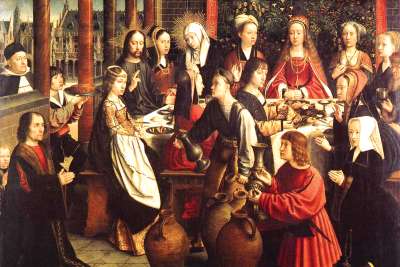My 86-year old joyful and faithful father has a cheeky toast that he likes to trot out once in a while. With glass raised, he proffers “Death to temperance!” It’s witty and always gets a laugh from family and friends. Yet, the wittiness of the toast draws back the curtain on our present societal stage more then one might expect.
In recent weeks, various news stories have hearkened not only the death of temperance but several other virtues. The U.S. Consumer Product Safety Commission proposed a ban on gas stoves citing studies showing them to be harmful to health and the environment. A CPSC official stated that “products that can’t be made safe can be banned.” By such a standard pretty much anything should be banned, including cars, baseball bats, ice skates, fish hooks and those espresso machines. All that nasty steam that escapes while milk-frothing is so unsafe.
Last week the Canadian Centre on Substance Use and Addiction (CCSA) came out with new guidelines on the consumption of alcohol. They emphasized no amount of alcohol is safe, but if you must drink you should have no more than two drinks per week. The health and safety risks for people consuming that amount were negligible. Previous guidelines capped drinks at no more than 15 a week for men and 10 for women. I have respect for those who are teetotal, but I suspect the wedding guests at Cana might have had words with the good bureaucrats at the CCSA.
Meanwhile, Oshawa city council is mulling a recommendation from ever-vigilant municipal insurance underwriters. It seeks to ban winter sledding at all but two parks in the city following an injury prevention expert’s advice that many city hills were not designed for tobogganing. What a shame that in creating the world, God failed to account for injury prevention in designing hills.
A new well-worshipped idol in our society today is the deity “Safe.” “Safe” is a seemingly benevolent force whose principal attributes, seen in its shrines across Canada, are a ream of bubble wrap and a “Keep Two Metres Apart” sticker. Yet “Safe”, like all idols, is something we have fashioned to comfort us so that we worship in a disordered way because the one true God in Three Persons does not offer us what we want. What we want — in this case to be in complete control at all times — is often not very good for us.
God instead gives us free will since He is perfectly free and fashions us in His image and likeness. He gives us our reason to make sense of the world and govern our lives in an ordered way in concert with the moral law. How we exercise that reason must be guided by virtue, which St. Augustine writes is “good habit consonant with our nature”, and not by our passions. Intellectual and moral virtues such as prudence, temperance, justice and fortitude and our diligent cultivation of them will lead to a good life, the life to which God is continually calling us.
Beyond pursuing excellence in our intellectual and moral lives, the virtues can instill in us other essential, if somewhat banal, habits: make sure the gas is shut off on the stove before leaving the house; do not over indulge in alcohol and harm our bodies; wear helmets when we take the kids sledding in Oshawa.
Beyond the beauty of the virtuous life, which even the classical Greeks knew, God goes further: He reveals Himself to us and guides us through that revelation. In the Holy Scriptures, He gives us in the examples of the great patriarchs, matriarchs and prophets, the wisdom of the Psalms, Proverbs and Ecclesiastes. Here we discern God’s law and also how we are to live. Ultimately, God gives us that greatest of gifts: Himself. Our Lord God and Saviour Jesus Christ, He who is life itself, did the most unsafe thing in all of history: He willingly gave Himself up for the life of the world by being crucified and dying on the Cross.
Our God is not the God of safety or risk mitigation; our God is the God of surprises, of joy, of plenty, of wisdom, of self-sacrifice, of infinite grace, and He calls us to fullness of life in the Resurrection of Christ who came in the world to save us, not to make us safe.
(Rev. Andrew Bennett is program director, faith communities, at think tank Cardus.)
Credit: Source link




